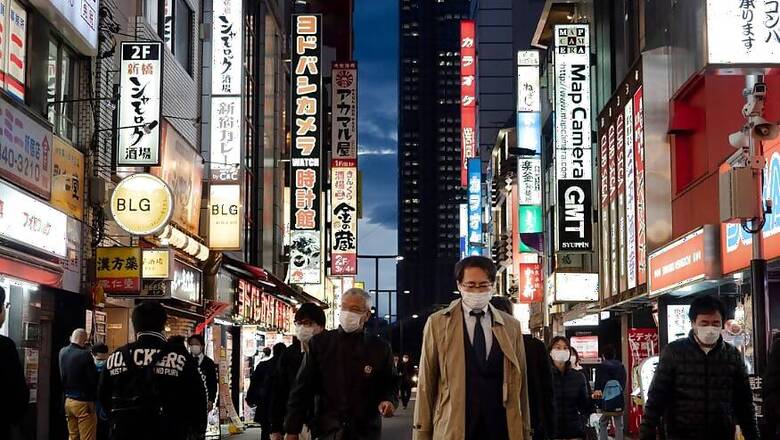
views
Tokyo: Salary men in suits crammed into trains during the rush-hour commute are staple scenes in Tokyo. Up until a few weeks ago, 52-year-old Hideya Tokiyoshi, who traveled into the capital from neighboring Saitama prefecture for work each day, was among them.
The English-language teacher moved to online lessons after his students grew anxious over the coronavirus pandemic, which has killed more than 46,800 people globally, according to the Johns Hopkins University.
Tokiyoshi, however, is a rare case.
While Tokyo's governor Yuriko Koike has urged the city's 13.5 million residents to telework where possible until April 12, and major Japanese companies such as Honda (HMC), Toyota (TM) and Nissan (NSANF) have asked staff to work from home, many employees are still commuting into the capital, where subway trains are busy during rush hour.
It's a similar story across Japan, where about 80% of companies do not have the ability to let their employees work remotely, according to 2019 government data.
And with Prime Minister Shinzo Abe this week declining to declare a state of emergency, which would put pressure on businesses to enforce social distancing, companies can still legally operate from their offices.
Underpinning this is Japan's notorious hard-work culture. A 2016 government study found that one in five employees was at risk of working themselves to death. The country even has its own word for it: "karoshi," or death by overwork, which is defined as employees working so hard that they die from stress-related diseases — or become so depressed that they kill themselves.
"The [coronavirus] information is on our mind and we're scared more than you would expect," tweeted Tokiyoshi recently. "But for average Japanese, work is always the highest priority and the biggest excuse.
"Unless [the] government shuts all businesses down with a few exemptions, no one will stay at home. We're slaves to work."
Exposing old habits
The now-delayed Tokyo 2020 Olympics were meant to showcase Japan as a high-tech nation with robots showing guests to their seats and artificial meteorites in the sky.
In reality, often people are wedded to more traditional ways of conducting business.
The fax machine, for example, remains a fixture in many offices, and people still use the company stamp to give official documents a seal of approval. In Japan, personal and company stamps are often used instead of electronic or handwritten signatures.
During the pandemic, many multinational companies have turned to messaging and video conferencing software such as Slack (WORK), Webex and Zoom (ZM) to keep in touch with colleagues.




















Comments
0 comment